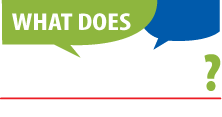Phrases starting with the letter: A B C D E F G H I J K L M N O P Q R S T U V W X Y Z
Definition of: who
(h ) pron.
) pron.
possessive case whose; objective case whom
1. As an interrogative, which or what person or persons.
2. As a relative, that: pointing out or fixing upon a particular person or persons, and identifying the subject or object in a relative clause with that of the principal clause.
3. As a compound relative, he, she, or they that: Who steals my purse steals trash.
—as who should say As one who should say; as if one should say. [OE hwa, hwā]♦ In modern usage, who as a relative is applied only to persons, which only to animals or to inanimate objects, that to persons or things indifferently. Whose is correctly used as the possessive of which, as well as of who, especially where the phrase of which would seem awkward: the man whose house was sold; a peak whose (of which the) summit seeks the sky. The use of whom as an interrogative pronoun in initial position, as in Whom did you see?, is supported by some grammarians, but the more natural Who did you see? Who did you give the book to? are in wider use and are now considered acceptable. However, when used after a verb or preposition, whom is still required, as in To whom did you give it? You saw whom? See also usage note under THAT (pronoun).

Comment about this word, ask questions, or add new information about this topic: